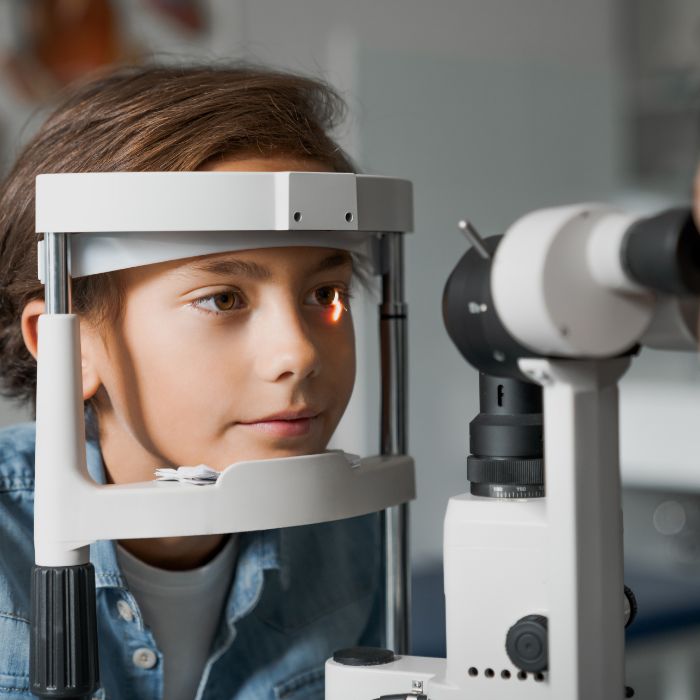Advanced testing and treatment for vision and learning difficulties.

Pediatric Eye Care & Visual Learning Difficulties
For many children, underlying visual issues can significantly hamper their ability to learn, engage, and thrive. Pediatric eye care, especially in the context of visual learning difficulties, is a crucial domain that often remains under the radar but has profound implications on a child’s overall development.
Children across the demographic spectrum can experience these visual challenges. Whether due to genetic factors, early developmental hiccups, or external environmental influences, such difficulties aren’t limited by socio-economic status, ethnicity, or other demographic distinctions. The concern, however, lies in the often subtle signs that parents and educators overlook, leading to a prolonged period of undiagnosed issues.

Common Visual Problems in Children
Refractive Errors: Includes nearsightedness, farsightedness, and astigmatism. These conditions can blur vision at various distances, making reading, writing, and recognizing faces a challenge.
Amblyopia (Lazy Eye): When one eye has reduced vision because it hasn’t worked properly with the brain. Without treatment, it can lead to permanent vision loss.
Strabismus (Crossed or Turned Eyes): The misalignment of eyes can affect depth perception and can lead to amblyopia if untreated.
Convergence Insufficiency: A condition where eyes don’t work together efficiently, making close tasks like reading strenuous.
Visual Processing Issues: Difficulties in processing and making sense of visual information can affect reading comprehension, hand-eye coordination, and spatial understanding.
Impact on a Child's Life
- Academic Struggles: Visual learning difficulties can hinder a child’s reading speed, comprehension, and even their ability to copy information from a board.
- Reduced Confidence: Struggles in school due to visual issues can erode self-esteem, making children hesitant to participate in class or extracurricular activities.
- Social Challenges: Poor visual skills can make team sports or even simple playground activities daunting.
Treatment Options to Brighten Their World
Comprehensive Eye Exams: The foundation of pediatric eye care, these exams can detect visual problems early, even before they manifest as learning difficulties.
Prescription Eyeglasses or Contact Lenses: Customized to correct refractive errors, ensuring sharp vision.
Vision Therapy: A tailored program of exercises that can help improve eye coordination, focus, and visual processing skills.
Surgery: In cases like severe strabismus, surgical intervention may be the best option.
Specialized Learning Tools and Techniques: For children with visual processing issues, certain tools and teaching methods can make learning more accessible.
Don’t let visual difficulties dim your child’s bright future. With the right pediatric eye care and intervention, they can overcome challenges and soar to new heights. Schedule an appointment with our dedicated team today and illuminate their path to success.
